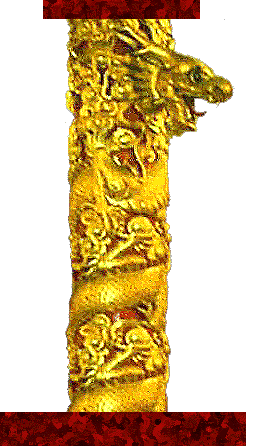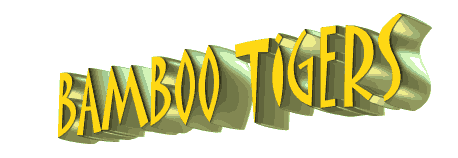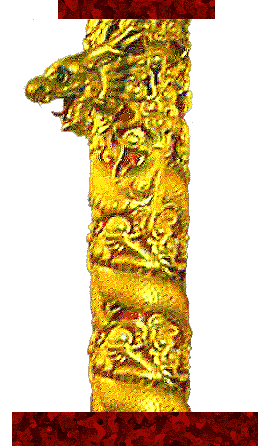| |
Shortly after 8 o'clock in the evening, they arrived in Milpitas and headed for Denny's, a fast-food restaurant, to meet a sergeant from the Milpitas Police Department. As they turned into the parking lot, Tim Simmons did a double take on a car going past in the opposite direction.
"Jesus Christ!" he whistled. "There they go!"
"Who?" asked Inspector Hobart Nelson of San Francisco Homicide.
"The guys we're looking for! Five goddamned Wah Ching, that's who!" cried Simmons. "Whip this baby around! Hotdog Louie, Johnson Wong, Daniel Yee, Perch Chan, Johnny Young--a regular full house!"
The car squealed in a U and shot out of the lot like a dragster. Busy signaling the second unmarked car to follow, Simmons suddenly turned his eyes to the road.
"Oh, shit," he yelled, "they were headed the other way!"
The car whipped into an illegal turn and reversed direction. Within seconds, a red light flashed behind them and a siren summoned them to stop. Out of the Milpitas patrol car swung the sergeant they were supposed to meet at Denny's.
"All right, you guys," he snarled, snapping open his traffic-ticket book, "where's the fire and what gives you the right to drag race in downtown Milpitas? You look old enough to know better!"
The officers identified themselves, but it was too late--the Wah Ching car was far out of sight.
It took the officers an hour to locate the building where John Wong lived. Situated in an area of middle-class apartment complexes, it constituted an ideal place for youthful gangsters to carry on clandestine activities without fear of discovery by the police. Their greatest enemy here would not be patrol cars looking for trouble as they would in a ghetto, but bourgeois families attracted by excessive noise or strange goings-on. This was unlikely in a culture where loud disco music and squirrely teen-agers formed accepted norms. John Wong lived in a perfect "safe" house.
David Yee was not so good at giving directions in the nighttime streets of Milpitas, or maybe he hoped his fellow gangsters had recognized the San Francisco police inspectors in the parking lot. Diarmuid Philpott, John McKenna, Tim Simmons, George Huegle and Hobart Nelson all were familiar faces in Chinatown. David told them he wasn't completely positive, but that one over there, at 1203 Calle Oriente, might be it. He pointed toward an apartment on the ground floor to the right.
"You guys stay here and keep David quiet," Simmons said, getting out of the car. "I saw some parking stalls in back when we came around the corner. I'll check it out."
"Be careful, Tim," cautioned McKenna. "These kids are the worst. They're like rats when they're trapped."
Simmons slinked to the rear of the building. Immediately he spotted two vehicles he knew belonged to Michael "Hotdog" Louie and Johnson Wong. That confirmed, he slid along the building until he could peer into the windows of the flat David had pointed out. Two black eyes burned back at him from behind a drawn window shade. He signaled the other officers to join him in surrounding the place.
No sooner had each policeman found himself a suitable spot, with his weapon drawn, than the apartment door swung open. The first Wah Ching suddenly appeared in the doorway with his hands in the air: Hotdog Louie, 17. Then came four more behind him in single file, like a row of corn: Gregory "Perch" Chan, who would celebrate his 16th birthday the next day; Johnny Young, 17; Daniel Yee, 18, and Johnson Wong, 16. Johnson closed the door behind him. It locked itself automatically.
"O.K., gentlemen, spread-eagle on the ground," ordered Huegle, "and keep your hands high."
The boys did as they were told. The cops frisked them, but found no weapons.
"Is anybody still inside?" snarled Simmons. No response from the gang. "Who's got the keys to the apartment?" Still no response. "Then we'll have to break down the goddamned door!"
Convinced that another suspect, John Wong, was inside, two of the cops heaved themselves mightily against the door, but succeeded only in jamming it. Chagrined, they had to resort to breaking a window and climbing in. The lights were on in the small apartment. The dining area and kitchen looked out into the living room. A bathroom and one small bedroom completed the modest unit. Apparently only those five boys had been inside.
In the course of a search that turned up numerous handguns and rifles, Simmons observed an open garbage can in the kitchen. Right on top lay a black shoestring matching the one which had bound the hands of Lincoln Louie. On a drafting board in the bedroom there was a sheet of paper listing the names and addresses of Joe Boy gang members, along with references to weapons kept in their arsenal. It appeared that someone had taken notes of the information extracted from Lincoln during brutal torture sessions.
The five Wah Ching were transported to the Milpitas police station where they were booked and then returned to San Francisco. The group of officers and suspects reached their home base about 5 o'clock Sunday morning.
There were still four suspects at large: David Ng, Warren Wong, Gordon Wong, and John Wong. The Wongs were not related to each other. Nelson, McKenna, Simmons, and the two Daly City detectives decided to apprehend David Ng at once, and headed for his home on California Street.
As they proceeded north on Polk Street, in the mid-1970's still the most renowned of San Francisco's gay districts, Simmons noticed two black males furtively removing clothing from a parked Volkswagen with out-of-state plates. It seemed to be an auto boost in progress.
"We'd better do something about that," he said to the others.
"Damn," groused one of them, "the last thing we need this morning is an unrelated arrest!"
When the cops got out of their car, one of the boosters jumped into a waiting auto, revved up and sped away, leaving his partner to the mercy of the law. John McKenna, at the wheel of the police car, swung it into a U-turn and caught the fleeing suspect at the next corner. A black-and-white unit responded quickly to McKenna's emergency radio call and hauled the two boosters away to Northern Police Station.
McKenna, Simmons and party finally arrived at their quarry's home. David Ng, sleepy-eyed, came to the door. The police also were anxious to question his brother Michael about the Gene Fong killing. The teenage boys shared a tiny apartment with their father. Simmons noted that the apartment, although small, was scrupulously neat. The father spoke a limited amount of English. Michael had to interpret for them.
"We're sorry to disturb you so early in the morning, Mr. Ng," McKenna apologized, "but we must talk to your sons about a couple of important matters." Evidently an accommodating man, Mr. Ng invited the policemen to sit and proceed with their interview.
"No, thank you, sir," said McKenna with a respectful nod of his head, "I'm afraid we'll have to take them down to Homicide for questioning."
The boys' father, now deeply disturbed, looked at his sons fiercely. David and Michael shifted nervously under his penetrating gaze. It was obvious that they respected their father.
Under questioning at Homicide, David Ng hung tough about his involvement in the Lincoln Louie affair until Simmons, remembering Mr. Ng's stern face, said, "David, I notice your father keeps a nice, neat house. He must have a lot of pride. He must care about you and your brother. You know, I've been in a lot of gang kids' homes. You're pretty lucky, son. A lot of parents don't give a damn if their boy's up to his neck in trouble."
David turned red and bit his lower lip.
"Even when the kid's involved in something serious--like you are," Simmons said quietly. "How do you think all this is going to affect your father?"
David sat up straight in his chair and burst into tears. "Oh, I didn't know it was gonna be so bad! I thought maybe we'd whip the guy's ass and let him go. I mean, we didn't plan it. Somebody saw him at the bus stop, and we just grabbed him. He didn't say nothing in the car. We held him down on the floor, and he shook and shook. He was scared to death. I thought maybe that was enough. Maybe we should kick him out on the freeway and make him walk home, but when we got to John's house, the older guys wanted to push him around."
"You didn't push Lincoln around yourself?" prodded Inspector Huegle patiently.
The boy dropped his head. "Well, I did...a little. The other guys were doing it. I had to do it, too. I gave him a couple of kung-fu chops. We all study kung fu, y'know."
Simmons nodded.
"All right, David," he said softly, "you admit you were there. You admit you helped kidnap him. You admit you helped beat him up. Hearing that isn't going to make your father very happy."
David slumped. "No, sir, it won't."
The cop's shoulders stiffened. His voice grew harder. "And what's he going to say if you're the one who killed Lincoln Louie?"
The boy gripped the sides of his chair. The tears burst forth again. "Killed him? Oh, no, sir! No, sir, I didn't do anything like that! Oh, God, no! He was alive when I left. The older guys must of done that. I wouldn' kill nobody!"
Later that day in the course of an interview of Johnson Wong, Simmons mentioned that Johnson's car had been observed in the area where Gene Fong was killed at the meat market.
"You know, you just might be charged with involvement in both the Lincoln Louie and the Gene Fong cases," the policeman observed.
Johnson looked stunned. "Jesus, you mean you're gonna charge me with killing BOTH those guys?"
Simmons' eyes narrowed. From that slip, it occurred to him that Johnson might possibly be the killer of Lincoln Louie. The policeman hadn't told him that Lincoln was dead. The 16-year-old obviously knew too much.
| |
|









